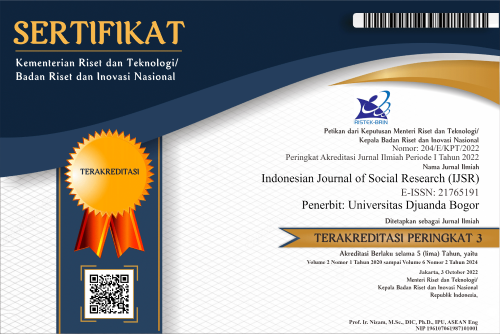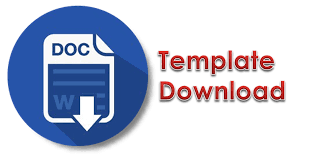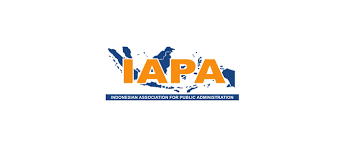Indonesian Learning: Towards the Academic Achievement of Communicative Competence
Abstract
Academic achievement becomes very important in the language learning process. Student performance, student progress and student potential are essential to measuring academic achievement or learning outcomes. This study aims to identify the relationship of final learning achievement with the student learning experience to improve students’ language skills. Research focuses on what skills are the final achievements of learning and observe whether the learning experience can support the plan of acquisition of learning achievements. Research design is qualitative content analysis. The population used is the semester learning plan document of the Indonesian language and literature learning model SD. Sample selection uses the method of sampling units by selectively distinguishing the units to be analyzed based on the scope of the research problem. Data analysis using interpretive approaches: Reducing data to manageable representations: summarizing or simplifying data; inferring contextual phenomena: relying on analytical constructs or models of the chosen context as warrants; Narrating the answers to content analysts’ questions amount to make the result comprehensible to others. Based on the study results, the learning experience is determined based on the end goal of learning. Discuss in-depth the concept of learning the Indonesian language and literature in elementary schools based on multiliterate, integrative, and differentiated learning concepts.
References
Ahn, J., & McEachin, A. (2017). Student Enrollment Patterns and Achievement in Ohio's Online Charter Schools. Educational Researcher, 46(1), 44–57. https://doi.org/10.3102/0013189X17692999
Bond, M. (2020). Facilitating student engagement through the flipped learning approach in K-12: A systematic review. Computers and Education, 151(February), 103819. https://doi.org/10.1016/j.compedu.2020.103819
Elahi Shirvan, M., Khajavy, G. H., MacIntyre, P. D., & Taherian, T. (2019). A Meta-analysis of L2 Willingness to Communicate and Its Three High-Evidence Correlates. Journal of Psycholinguistic Research, 48(6), 1241–1267. https://doi.org/10.1007/s10936-019-09656-9
Fulcher, G., & Davidson, F. (2007). Language Testing and Assessment: An Advanced Resource Book. Routledge.
Guinibert, M. (2020). Learn from your environment: A visual literacy learning model. Australasian Journal of Educational Technology, 36(4), 173–188. https://doi.org/10.14742/AJET.5200
Jufrida, J., Basuki, F. R., Kurniawan, W., Pangestu, M. D., & Fitaloka, O. (2019). Scientific literacy and science learning achievement at junior high school. International Journal of Evaluation and Research in Education, 8(4), 630–636. https://doi.org/10.11591/ijere.v8i4.20312
Krippendorf, K. (2004). Content Analysis: An Introduction to Its Methodology. Sage Publication,Inc.
Lee, J., Song, H. D., & Hong, A. J. (2019). Exploring factors, and indicators for measuring students' sustainable engagement in e-learning. Sustainability (Switzerland), 11(4). https://doi.org/10.3390/su11040985
Oweis, T. I. (2018). Effects of Using a Blended Learning Method on Students' Achievement and Motivation to Learn English in Jordan: A Pilot Case Study. Education Research International, 2018. https://doi.org/10.1155/2018/7425924
Ruiz-Madrid, N., & Valeiras-Jurado, J. (2020). Developing multimodal communicative competence in emerging academic and professional genres. International Journal of English Studies, 20(1), 27–50.
Solli, A., Hillman, T., & Mäkitalo, Å. (2019). Navigating the Complexity of Socio-scientific Controversies—How Students Make Multiple Voices Present in Discourse. Research in Science Education, 49(6), 1595–1623. https://doi.org/10.1007/s11165-017-9668-5
Tleubay, S., Nurzhanova, G., Ybyshova, S., Abdigulova, S., Mankesh, A., Kerimbekov, T., & Ualikhanuly, A. (2020). The formation of intercultural communicative competence of future teachers in a trilingual educational environment. International Journal of Emerging Technologies in Learning, 15(17), 148–164. https://doi.org/10.3991/ijet.v15i17.14249
Copyright (c) 2021 Indonesian Journal of Social Research (IJSR)

This work is licensed under a Creative Commons Attribution-ShareAlike 4.0 International License.
The Authors submitting a manuscript do so on the understanding that if accepted for publication, copyright publishing of the article shall be assigned/transferred to Indonesian Journal of Social Research (IJSR) Universitas Djuanda as Publisher of the journal. Upon acceptance of an article, authors will be asked to complete a 'Copyright Transfer Agreement'. An e-mail will be sent to the corresponding author confirming receipt of the manuscript together with a 'Copyright Transfer Agreement' form by online version of this agreement.
Indonesian Journal of Social Research (IJSR) Universitas Djuanda, the Editors and the Editorial Board make every effort to ensure that no wrong or misleading data, opinions or statements be published in the journal. In any way, the contents of the articles and advertisements published in the Indonesian Journal of Social Research (IJSR) Universitas Djuanda are sole and exclusive responsibility of their respective authors and advertisers.
Remember, even though we ask for a transfer of copyright, our journal authors retain (or are granted back) significant scholarly rights as mention before.
The Copyright Transfer Agreement (CTA) Form can be downloaded here: Copyright Transfer Agreement-IJSR 2020
The copyright form should be signed electronically and send to the Editorial Office e-mail below:
Dr. Rasmitadila, M.Pd (Editor-in-Chief)
Universitas Djuanda
Jl. Tol Jagorawi No.1, Ciawi, Kec. Ciawi, Bogor, Jawa Barat 16720
Website: http://journal.unida.ac.id/index.php/IJSR/index
Email: ijsr@unida.ac.id





4.png)



